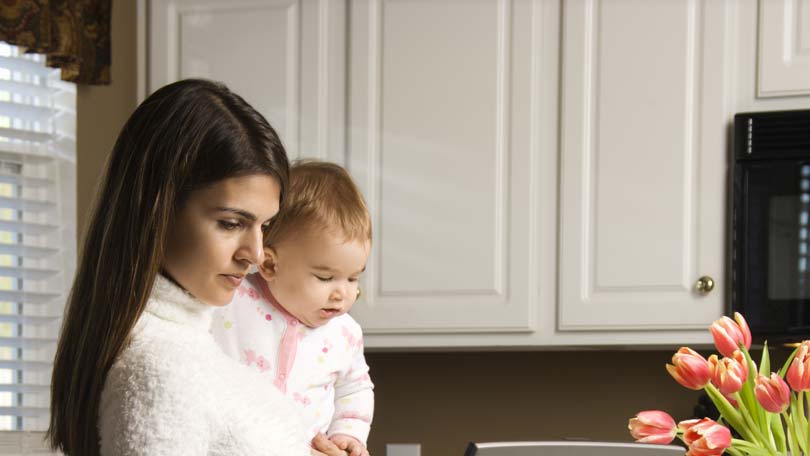
Having just had my second baby, I can see the familiar signs of sleep deprivation in my appearance and demeanor: dark circles under my eyes, slouchy posture, slow pace, forgetfulness and, occasionally, a rather short fuse. I’ve even had days when I have opted not to drive my car because I felt too tired to operate it safely.
It’s a fact of life: sleepless babies mean sleepless parents. Being resilient and in the thrall of their little ones, most parents find a way to cope with the lack of sleep that plagues them in the first year of their child’s life (and often beyond). But I would wager that if you asked, they would all tell you that sleep deprivation was one of the greatest challenges they faced as parents.
Adequate sleep is especially important for new moms, since sleep deprivation can lead to postpartum depression. Equally grave is the potential for Shaken Baby Syndrome, an extreme result of overtired, frustrated parents dealing with a crying baby. Other effects of sleep deprivation, described below, are profound and far-reaching.
- having trouble waking
- feeling groggy all day
- inability to concentrate
- nodding off at work or home
- mood problems, i.e. irritability, depression, anxiety
When you apply these symptoms to everyday life, you can see the serious effects of sleep deprivation. The working parent may find himself snapping at co-workers, struggling to stay awake during meetings and performing at less than optimum levels. A mother may find herself nodding off while feeding Baby or breaking down into tears for no apparent reason. The stress felt by parents can affect their relationship with each other and with their children.
Of course, how to get more sleep is the $25,000 question. Experienced parents and sleep experts have devised some coping tips for new parents. Use these strategies to help you get the seven to nine hours of sleep you need every day.
Catch up whenever you can. Parents lose about 350 hours of nighttime sleep during Baby’s first year. Naps are a great way to catch up. Sleep on weekends and work out a system of shifts so both parents can take turns napping.
If possible, ask a friend or family member to come and watch Baby while you nap.
For many new parents, caffeine is the first line of defense against sleep deprivation, but this is not usually the best course of action. All parents, and especially nursing mothers, are advised to moderate their consumption of this stimulant so their nighttime sleep is not affected. (Alcohol and nicotine don’t help either.)
Change your diet. Starchy, heavy foods induce a drowsy feeling. Focus on fruit, vegetables and lighter carbs to feel more alert.
Try not to exercise within three hours of bedtime.
Nursing mothers can try co-sleeping and feeding from the side-lying position to minimize disruptions.
For parents who are bottle-feeding, take turns with the nighttime feedings. If possible, keep room temperature water and bottles pre-filled with formula powder at your bedside to reduce the number of trips to the kitchen.
Co-sleeping is an option for some families, but parents must take precautions to ensure Baby is safe. If Baby doesn’t share the bed, she can sleep in a bassinet near the bed to save parents from frequent trips down the hall.
Skip the chores. As hard as it is, try not to do household chores when Baby sleeps. When Baby naps, you should too.
Above all, despite the difficulties, try to cherish this time. You’ll be amazed how quickly it passes!





